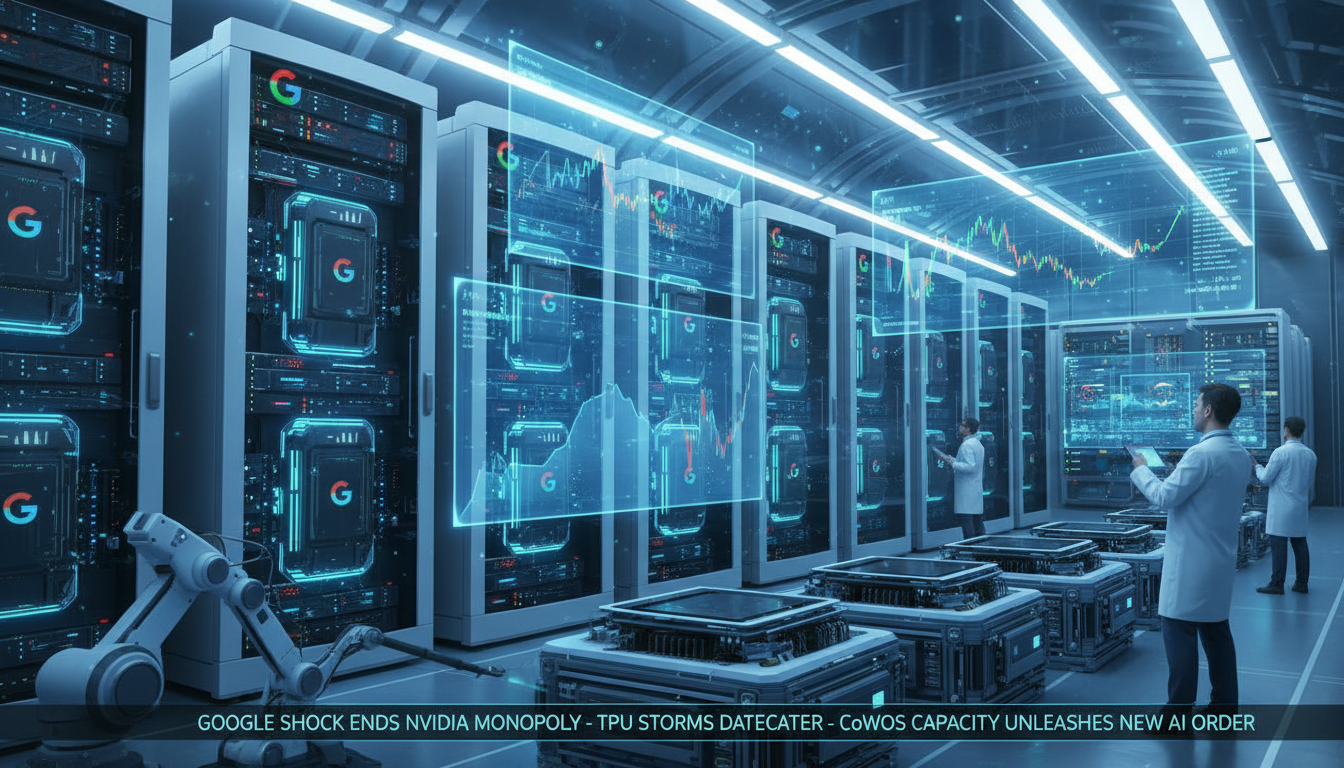● China, Hackers, Supply-Chain, Cyberwarfare, Security
No Longer Someone Else’s Problem: The Era of Serial Cyber Attacks, the Crisis of South Korea’s Economic Security, and How to Cope
I will clearly explain why you should read this article to the end.
I will point out the structural causes of repeated large-scale cyber accidents that may occur in the future, such as the recent 'SKT USIM Information Leakage Incident', with actual cases and data.
I will comprehensively summarize everything from the reality that it is impossible to respond without national-private-international cooperation, to the reality of Chinese and North Korean hacker threats, and technological trends (zero-day, supply chain attacks, AI hacking).
I have thoroughly summarized the current status of South Korea's cyber security legislation, talent, and ecosystem, the opportunities it provides for domestic demand and manufacturing, and smart countermeasures that individuals and companies can really take.
After reading it, you will definitely feel that cyber security is a real economic growth engine and a national survival strategy.
Cyber Security Threats: Large-Scale Hacking Accidents That Have Become a Reality
- Hacking that has occurred successively in key infrastructure such as telecommunications, finance, and energy is a predicted disaster.
- It has been repeated from the 2014 KT information leak, the 2020 KT Webhard malware installation, the 2023 LGUplus personal information leak, and the latest SKT USIM incident.
- In the past, it was considered a problem for some IT companies, but now the entire national system risk (economic security, finance, energy, information and communication) has been directly hit.
- Even the United States suffered great chaos due to the hacking of nine government departments, including the Department of the Treasury in 2020 (Russian-originated supply chain attack), and the hacking of VIPs such as Secretary Yellen in 2023.
- It is already too late to "respond-recover". Prior detection, preemptive IT investment, and national/private/international cooperation are essential.
Global Threats: The Reality of China and North Korea’s Cyber Power and South Korea’s Vulnerabilities
- China has 200,000 hackers alone, and North Korea is also training more than 10,000 professional hackers. Constant intelligence and financial-purpose attacks, and borderless hacking organizations are moving.
- The possibility of internal network damage (information leakage from telecommunications companies and financial companies → linked to VIPs, political and industrial secrets) is actually worth worrying about.
- China and North Korea are strategically moving under national support, rewarding/nurturing talent, and even adding patriotism marketing.
- On the other hand, South Korea has a lack of cyber security laws, insufficient speed and scale of talent development, and a loose control tower structure between government departments.
- Technology control by the United States and the West (e.g., phasing out Huawei and 5G communication equipment) shows that it is a quiet threat to the Asian market that has only pursued cost-effectiveness.
Advancing Hacking Technology: The Present and Future of Zero-Day, Supply Chain, and AI Hacking
- Hacking technology is a repetitive game of 'hit and receive'. Perfect defense is impossible, and zero-day vulnerabilities occur constantly.
- Once a supply chain attack has penetrated with a 'backdoor', it can never be detected by security-strengthening systems in the annual new product and update process.
- AI and open source-based algorithms and software are also designed to make it difficult to detect malicious behavior (internal betrayal) during a 'key trigger'.
- In particular, as AI agents advance into all industries such as finance, manufacturing, and medicine, AI-based omnidirectional attacks are possible (rebellion occurs when a specific packet 'command' comes).
- Key: The real problem is the spread of intelligent attacks targeting 'national VIPs and key industrial figures' through theft of personal information, voice, and SNS.
Legislation, Ecosystem, Talent: South Korea’s ‘Humble’ Current Situation and Practical Alternatives
- The United States and Europe have already been operating a system of proactive prevention, talent development, public-private cooperation, and international information exchange based on the 'Cyber Security Act'.
- Legal support in South Korea is virtually '0'. Laws that have not developed since 2006 and legislative stagnation due to factionalism even when politics and regimes change.
- Actual figures for talent development: around 30 to 500 people per year (public + private integration), which is too small to be compared with China/North Korea/United States.
- Since the country does not provide proper incentives, honor, and economic rewards, most science and engineering talents leave externally (preferring medicine, pharmacy, and high income).
- On the other hand, the United States and China are building a full-line including 'national-level' talent discovery, compensation, international experience exchange, and dedicated military academies.
- Conclusion: If a legal, organizational, and financial foundation + a talent development ecosystem are not established, economic sovereignty itself will inevitably be shaken.
Private-Government-International Cooperation System and New Opportunities for Domestic Manufacturing
- Cyber threats are a dynamic game of 'attack-defense'. National independent defense is impossible without private infrastructure (80% ownership).
- A pan-national team system is needed, including information sharing with the United States, early intelligence detection systems, diplomacy, defense, industry, and finance.
- While reducing dependence on China such as Huawei, the capabilities of domestic manufacturing (network, software, data security) can act as an opportunity.
- In building AI, big data, and sensor-based digital twin infrastructure, only 'trust-based' solution providers can lead the global market.
- In fact, there are many cases where 'crisis becomes opportunity', and in the long term, it can become a growth engine for the Korean IT/security industry.
Response Strategies for Individuals and Businesses That Can Be Practiced in Everyday Life
- 'Perfect' security is impossible, but blocking practical risk factors is important.
- Always maintain the latest security solutions (free antivirus, fraud detection, two-factor authentication, etc.).
- Prohibit clicking on suspicious links and make it a habit to manage and update personal information.
- Companies, institutions, and organizations need to conduct 'regular cyber training' and constantly check the actual accident response process.
- By maintaining vigilance and continuing information security awareness education, you can protect both the economy and daily life safely.
< Summary >
Repeated cyber hacking is an economic security risk that shakes infrastructure, information, and even economic sovereignty.
Threats such as Chinese and North Korean professional hackers, supply chain attacks, and AI hacking are becoming more sophisticated.
South Korea lacks laws, talent, and organizations, and if this continues, it is certain to lose in the global financial and manufacturing competition.
Comprehensive measures are essential, including legislation, private-government-international cooperation, talent development, and discovery of manufacturing opportunities.
Individuals and companies need to minimize risks with practical security habits.
Cyber security has now become the core of economic growth and national survival.
SEO Summary for Economic Blogs (Korean Intimate Style)
Cyber security incidents such as hacking of telecommunications companies and financial institutions have become commonplace.
21st century economic security, global economy, supply chain stability, digital innovation, and talent development are key keywords.
The actual threat level is rapidly increasing, including 200,000 Chinese hackers, AI hacking, and zero-day vulnerabilities.
South Korea's laws and ecosystem are insufficient, talent is lacking, and private and national cooperation is essential but still lacking.
If supply chain attack patterns spread and response capabilities for new AI/big data technologies are not strengthened, global competitiveness will be lost.
Government-private-international cooperation, legislation, and practical talent development are the only ways to protect the national economy.
Security habits that can be practiced by both companies and individuals are essential, and it is a time when crisis is an opportunity.
[Related Articles…]
- Global Supply Chain Disruption and the Future Strategies of Korean Companies
- Data Security and Corporate Survival Strategies in the Age of AI
*YouTube Source: [경제 읽어주는 남자(김광석TV)]
– 사이버 전쟁의 서막이 보인다… 중국 해커들의 공급망 공격 시나리오, “국가 안보가 달린 문제” | 경읽남과 토론합시다 | 임종인 교수 2편

● Smell of Imminent Crash
Is it really a good investment opportunity in a year? ― Key Insights into the Global Asset Market
If you look at the contents covered in this article,
① The actual background of the recent global stock market and KOSPI panic,
② Intuitive points unique to investors who smell the 'scent' of the market,
③ The true meaning of asset allocation and the commonalities of successful investors,
④ Core indicator trends and crisis scenarios for the US/Korean economy,
⑤ Trump, tariffs, exchange rate variables, and future investment responses are all specifically organized.
After reading, you can learn what to prepare for in current asset investment, and even know-how to survive uncertainty.
Recent Global Stock Market Panic and the Lesson of “Fox Trading”
– KOSPI market panic due to the US-China tariff issue in early April, there was a moment of so-called “fragrant smell” that was boldly bought in the highest panic section.
– At this time, PBR 0.8 times (KOSPI liquidation price of 10,000 won, actual transaction 8,000 won), that is, “buy low” was practiced in the all-time low-priced section.
– Even if the market cannot be accurately predicted, it can be approached based on data, psychology, and smell.
– Rather than being swept away by fear in a crash market, the key is to seize opportunities like a ‘fox’ (=Fox Trading) only when the odds are clearly in your favor.
– There is no need to hit the bottom, and divide and buy at the bottom after distributing and holding cash.
– When the market is leaning in one direction, you have to move in the opposite direction from the know-how of experts.
Importance of Asset Allocation & “Attitude to Handling Money”
– In investment, admitting your ignorance and mistakes and moving flexibly is a survival strategy.
– Rather than absolute “all-in” or “leverage”, diversification and holding cash assets lead to higher returns in the long run.
– Example) A structural investment method that increased the proportion of gold and cash assets usually, and expanded the proportion of stocks in the market panic.
– In both the US and Korean stock markets, excessive fear is prohibited compared to past crises (PBR, stock price decline rate).
Key Indicators of the US Economy and the Antecedent-Subsequent Relationship of the Crisis
– Real wages (nominal wages – prices) and employment indicators are representative signals of economic direction.
– US employment and real wage growth are still solid, but
Changes such as interest rates, inflation, and delinquency rates need to be checked at all times.
– In the section where bank interest margin/delinquency rate decreases, loan increase → in the section where profitability weakens,
New loans are immediately restricted. (Possibility of inflection next year)
– Weakening of real wages, and a full-fledged deterioration of consumption/employment indicators are warning signs of a rapid turnaround/recession.
Trump ― Tariffs, Exchange Rates, Global Variables and Investment Responses
– Risk of Trump’s tariff war and re-emergence of variables such as additional tariffs/exchange rate manipulation after July this year.
– The exchange rate is expected to fluctuate subtly up and down, increasing intraday volatility and worsening investment sentiment.
– Foreign exchange market intervention is no longer effective, and the pressure to strengthen the won/lower the exchange rate may rather increase.
(Realistically, the possibility of gradual decline after repeated ups and downs rather than a sharp rise)
– Corporate performance, exports, and bank soundness are still holding up well, but
A “slow recession” route of tariffs → price increase → supply chain crisis → deterioration of real indicators → contraction of employment/investment needs to be guarded against.
Importance of Investor’s Psychology and Experience in Recurring Crisis
– Information, fear, and biases are repeatedly crossed (Internet/SNS, group chat rooms, etc.).
– Experts embody “luck”, “trained data”, and “self-reflection” into investment intuition.
– When the market reflects everything and seems to be extremely ruined, the price is already significantly reflected.
– The real crisis is when everyone looks happy but there is an ‘uneasy gut feeling’ (e.g., leverage surge last year, coin craze, etc.).
2024-25 Asset Market Outlook & Signals
– For the US economy, hard data is still holding up, but tariffs/exchange rates and political variables are full-fledged risk points at the end of this year to next year.
– Global assets such as Korea have already reflected many risks in terms of valuation, and divided buying is effective if they fall.
– As we move towards the second half of 2024 to the end of 2025, investment sentiment is expected to fluctuate and attractiveness is gradually expected to recover, so continuous distribution strategy is necessary following signals.
– However, it is not yet a bottom section full of the scent of “tremendous attractiveness”. Pay attention to relatively safe assets such as government bonds.
< Summary >
- Distribute and hold cash in the market "like a fox", divide and buy when the crisis fear is severe. – Watch US indicators such as real wages and employment while observing Trump's risk.
- Market ups and downs expand due to tariff/exchange rate variables, direct intervention effect is insignificant.
- Growing intuitive investment sense with expert know-how and data is a crisis response point.
- Keeping your own investment criteria when the market is extremely biased is the final survival strategy.
SEO Optimized Summary
Market core data such as 2024-2025 global economic outlook, asset market panic, diversified investment, exchange rate, and real wages, and
Organized investment intuition of professional traders, asset allocation methods, and Trump’s tariff and exchange rate variables.
To overcome the bias of investment sentiment that is repeated every crisis, and to survive by investing in the power of smelling (intuition)
Presents expert strategies and the way of thinking of successful investors.
The market is always uncertain, but the data + allocation + intuition combination is the key keyword for survival in the asset market!
[Related Articles…]
- Where is the global stock market heading ahead of the US presidential election? Signals of Crisis and Opportunity
- 2024 Won Exchange Rate Outlook and Export Company Stock Investment Strategy
*YouTube Source: [와이스트릿 – 지식과 자산의 복리효과]
– “폭락의 향기” 기가 막히게 돈 냄새를 맡는 방법 / 홍춘욱 대표 (2부)



